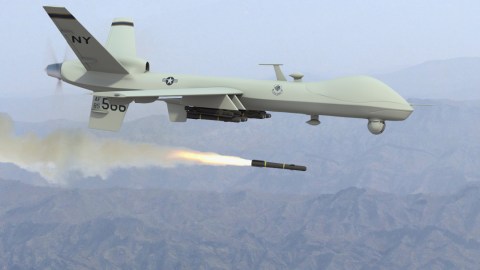On Micromanaging the Military

During my time in the Department of Defense we had to and did in fact give military commanders enormous freedom and flexibility. There was nothing like you’re seeing now with the White House where a President of the United States and the Oval Office is picking targets. We simply didn’t do things like that.
We received proposals, plans, military plans from the military commanders and we reviewed them in the Department of Defense. We reviewed them then in the National Security Council and the President and then the military was free to go out and implement then in large measure.
I never got into the micromanagement and that type of thing. I don’t know who this person is that you’re citing and I don’t know what he wrote, but what I’ve just said is the fact and you’re always going to be—if you don’t something somebody is not going to like it. You’re going to be criticized and sometimes you’re criticized for having too strong a hand and sometimes you’re being criticized for not being engaged enough in managing the process and I one time I said to a commander down some distance who had been on the Iraq border—correction, the Syrian border and in Iraq and he’d been—people had been fired on and he responded to me that he’d responded proportionally and I broke my rule.
Instead of dealing with this man’s boss, the CENTCOM commander out of my mouth came the comment, “Why did you respond proportionally? If you want to get your people killed that’s a good way to do it. They fire a few shells and they fire a few shells and the next time they’re going to hit some of our people and kill them. Why wouldn’t you respond disproportionally? Why wouldn’t you make sure they understood that that’s not a good thing for them to be doing, firing into locations where US military people are and killing our people?”
And I got back and I apologized to General Casey. I told him immediately what I had done and that I didn’t know what his instructions were down the line, but there is an old rule that you never expect to learn anything up the chain of command because you’ve got to recognize that it gets all strained. You have to go talk to people and so forth to learn, but you ought to never give a command down, except down the chain of command and I didn’t. I mean I think if I were to be criticized probably it would be for too light a hand rather than too heavy a hand in terms of military guidance down the line.
We approved broad military plans, had a lot of interaction, but once we agreed to them then they were out implementing them and we did not try to micromanage them because the enemy has a brain. No plan lasts after first contact with the enemy. Once you get down there then you have to begin adapting and adjusting because for every offense there is a defense and for every defense there is an offense.
In Their Own Words is recorded in Big Think’s studio.
Image courtesy of Shutterstock





